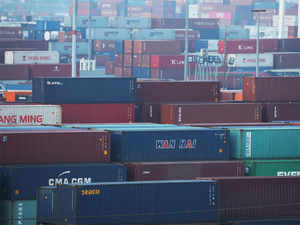NEW DELHI: Free trade agreements with Australia, Canada, and the European Union will help boost the country's textile exports, an apparel export promotion body said on Thursday.
Apparel Export Promotion Council (AEPC) Chairman A Sakthivel said the government should pursue free trade agreements (FTAs) with these countries as they hold huge potential for India's exports.
"India should do comprehensive FTAs with Australia, Canada, the UK and the EU. Once we get these pacts done, the sector would not require hand holding from the government," he said.
Sakthivel said currently Indian textile exporters have to pay about 10 per cent customs duty in these countries.
"FTAs will help in significantly reducing or eliminating these duties, which will help exporters to increase their shipments," he told PTI.
Currently, the European Union (EU) accounts for 45 per cent of India's total textile exports. On the other hand, Canada and Australia account for only 2-3 per cent, he added.
The chairman said India should also look at such pacts with the UK after Brexit.
India is already negotiating agreements with both Australia and Canada, but the talks are going at a slow pace.
Similarly, negotiations with the EU are stalled since May 2013. Both the sides are working to resume the talks soon.
Under an FTA, two or more trading partners significantly reduce or eliminate customs duties on maximum number of goods traded between them. They also liberalise norms to increase trade in services and boost investments.
Further, Sakthivel urged the government to announce support measures for the sector in the forthcoming Budget to increase exports as it faces certain challenges at liquidity front.
India's apparel exports sector is facing tough competition from Bangladesh, Vietnam and Cambodia.
The country's apparel exports stand at USD 17 billion, while Bangladesh, Vietnam and Cambodia ship apparel worth USD 38 billion, USD 27 billion and USD 12 billion, respectively.
The textile sector employs about 360 lakh people directly and 180 lakh indirectly.
Published On : 09-01-2020
Source : Economic Times

